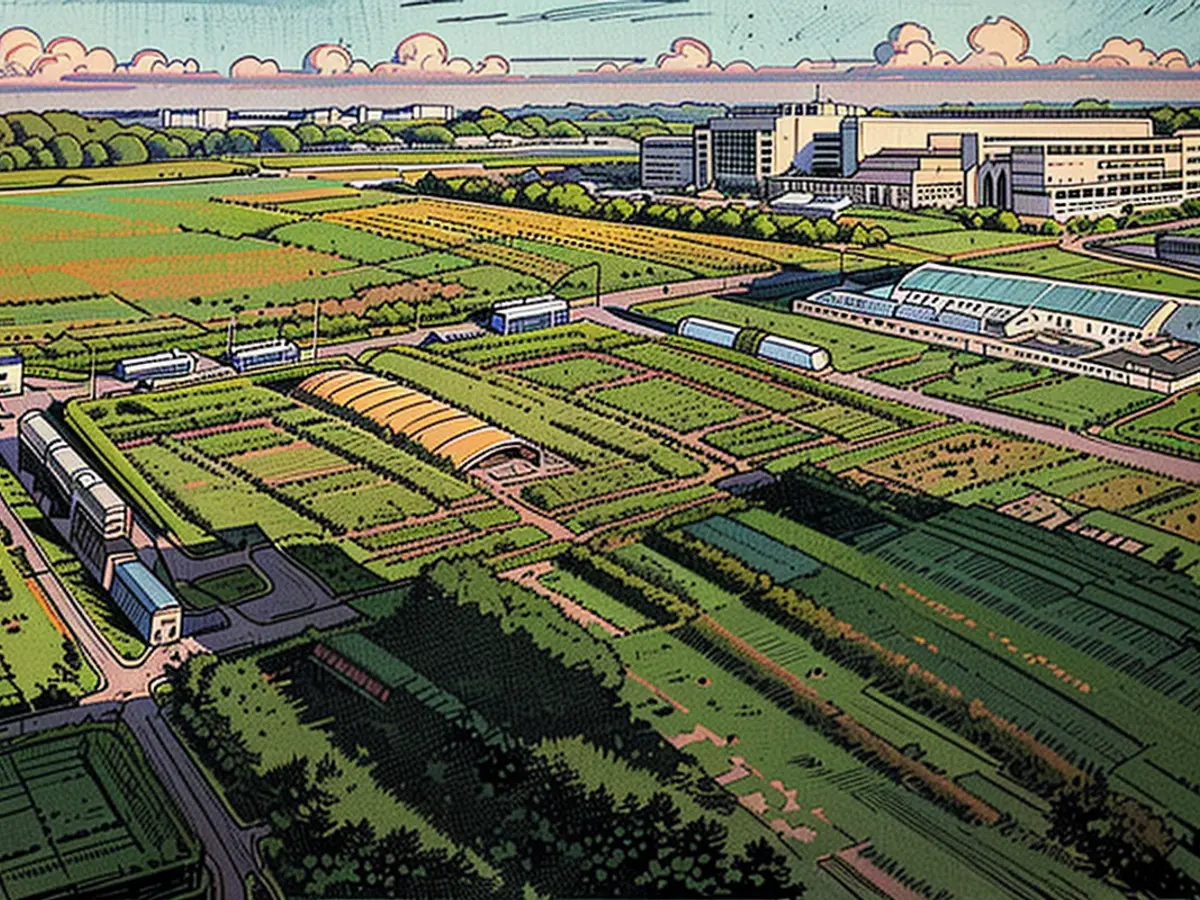Is the TSMC manufacturing facility in Dresden sparking intense employment growth?
In Dresden, Saxony, the groundbreaking ceremony for a semiconductor factory by Taiwan's leading manufacturer, TSMC, took place today. The event is predicted to attract notable figures like German Chancellor Olaf Scholz, EU Commission President Ursula von der Leyen, and Saxony's Minister President Michael Kretschmer, in addition to TSMC board member C.C. Wei.
Germany expects the project to boost its domestic semiconductor industry, while Saxony anticipates thousands of employment opportunities as a result. As per the CEO of the trade association Silicon Saxony, Frank Bösenberg, the construction of TSMC's factory will create around 6,000 jobs over the course of several years. Bösenberg further stated that for every job at a chip manufacturer, there are three jobs created in suppliers and services.
Not just TSMC, other semiconductor companies like Intel and Infineon are planning to establish their presence in Saxony. The regional employment in microelectronics and software industries could potentially surpass 100,000 by 2030, as per the "Handelsblatt".
TSMC is capitalizing on the surge in artificial intelligence (AI) which necessitates powerful chips due to high computing demands. To reduce dependency on Asian imports, chip companies are heavily investing in the US and Europe. However, comprehensive capacity expansion is a time-consuming process with production in Dresden slated to commence in 2027, according to a TSMC statement from August 2023.
Location choice is strategic
The strategic choice of location is not haphazard: Currently, nearly half of European semiconductors originate from Saxony. A globally recognized chip ecosystem has developed, encompassing numerous research institutions and suppliers, spawned from decades of experience in Dresden's semiconductor sector. The first semiconductor factory was set up here back in 1961 during East Germany's times.
It's important to note that the German government is offering a five-billion-euro subsidy to support the factory construction. Semiconductor expert Peter Fintl from consulting firm Capgemini believes that "the subsidies Europe is granting offset some of the location disadvantages". To stay competitive with Asia, either improved long-term conditions should be in place or direct subsidies should compensate for the disadvantages.
Fintl views the investment as sensible. He often witnesses debates about why so much investment is being made in this technology and how European companies don't profit from it. He explains that, "The semiconductor industry does not just provide jobs in the factories. It generates a broader ecosystem of employment opportunities".
Job security uncertain
However, Infineon and Intel have announced job cuts recently. The CEO of the Halle Institute for Economic Research, Reint Gropp, is critical of subsidies. He mentioned that the authorities are wasting money by supporting profitable companies. Gropp thinks there should be no handouts.
The CEO of Globalfoundries also shares the same perspective. He finds it unsettling that TSMC receives subsidies for a factory while others don't, which creates an unbalanced competitive landscape. Globalfoundries, with a presence in Dresden for years, has helped make the region an attractive semiconductor hub. TSMC also benefits from the research and supplier environment that Globalfoundries has established.
However, it's yet to be determined if the chip factories in Saxony will become employment powerhouses. Both Infineon and Intel have announced employment reductions globally in recent times. Intel plans to cut 15,000 jobs, while Infineon is laying off 1,400 employees and moving another 1,400 jobs to countries with lower labor costs.
The Netherlands could potentially benefit from this semiconductor boom in Europe, as chip companies may consider expanding their operations there to diversify their locations and reduce dependency on Asian imports. Saxony's skilled workforce and established semiconductor ecosystem in Dresden have attracted global manufacturing giants like TSMC, Intel, and Infineon, which could inspire similar investments in other European countries, including The Netherlands.








